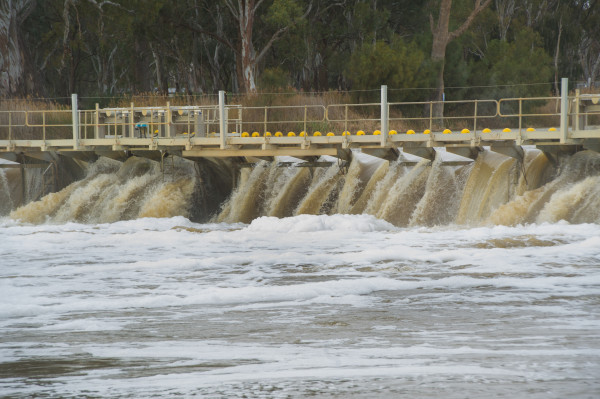THE new book Sold Down The River exposes the issues of water rights in the Murray-Darling Basin.
In a series of interviews with farmers, irrigators, water traders, brokers, market operators and investors, authors Scott Hamilton and Stuart Kells discovered a series of scandals associated with how water is regulated and manipulated by the top end of town.
As the Hayne Royal Commission found with mortgage brokers, Hamilton and Kells found that water brokers often did not act in their clients’ interests.
The authors unearthed major problems in the design of the water market. Rules to prevent conflicts of interest were weak. False and stale information was widespread and the “cap and trade” system was flawed because it did not cover the whole basin.
Farmers and irrigators had to run a gauntlet of misinformation and predatory traders and brokers who could transact in a billionth of a second.
The book tells the tales of how high-speed traders snap up all the well priced water and then dribble it out at farmers’ maximum ability to pay. They expose how computer algorithms, referred to in share trading as “bots” are used to be first in the queue for inter-valley transfer openings.
The book reveals how traders bragged about earning annual returns of 100 per cent or more. The tens and hundreds of millions of dollars they make every year from trading are a dead loss for the basin – effectively a basin-wide water tax.
Hamilton and Kells find that family farms are becoming more precarious as farmers have to pay the maximum amount for water, which has become more valuable than land.
Farmers were concerned about their legacy for the next generation. Some were in a downward spiral: selling water entitlements for cash, then relying on the short-term allocations market. As water prices rose, farmers could afford less and less. They cut back on their farming activities. Eventually they would default on their loans and the banks would move in.
In their day-to-day water trading, hedge funds and investment banks used complex tactics such as “spoofing”, “spamming” and sophisticated forms of arbitrage.
The most ambitious traders made use of their relationships with large agribusinesses. The traders relished the volatility of the market. In times of high water demand, they cheered on the spikes in prices.
In the 18th century, Adam Smith emphasised that markets would be socially beneficial only if they had strong legal foundations that ensured integrity and fairness.
In the case of the Murray-Darling Basin, the water market has failed on any measure, whether it be economic, social, environmental or cultural.







